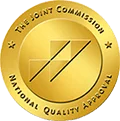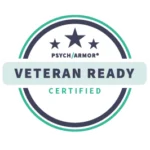Many people experience both mental health issues and problems with substance use at the same time. According to the Substance Abuse and Mental Health Services Administration (SAMHSA), nearly one in four adults with a serious mental illness also has a substance use disorder. This combination is called a co-occurring disorder or dual diagnosis.
At Arkview Behavioral Health, we specialize in helping individuals and families in Pennsylvania who are facing both mental health and substance use challenges. Our team uses evidence-based care to address the unique needs of each person, supporting recovery at every step.
What are Co-Occurring Disorders?
Co-occurring disorders happen when someone has both a mental health disorder—such as depression, anxiety, PTSD, or bipolar disorder—and a substance use disorder, like alcohol or drug addiction. These conditions often influence each other, making treatment more complex.
Addiction is recognized as a mental health disorder in the Diagnostic and Statistical Manual of Mental Disorders (DSM-5), which means it is classified alongside other psychological conditions. Substance use disorders are considered psychological disorders because they affect a person’s thoughts, feelings, and behaviors.
The National Institute of Mental Health (NIMH) reports that about 9.2 million adults in the United States had both a mental illness and a substance use disorder in the past year. Common examples of co-occurring disorders include:
- Depression and alcohol use disorder: Alcohol is often used to cope with feelings of sadness or hopelessness, which can make depression worse when it begins to post-traumatic stress disorder may use drugs or alcohol to manage distressing memories or feelings.
- Bipolar disorder and drug addiction: In cases of bipolar disorder, substance use can occur during manic or depressive episodes, leading to ongoing substance problems.
Treating co-occurring disorders involves addressing both the mental health and substance use conditions at the same time. At Arkview, we provide integrated care to help individuals move toward long-term stability and wellness.
Why do Mental Illness and Substance Abuse Often Happen Together?
Mental illness and substance abuse often happen together because of several interconnected reasons. Research shows that having one condition can increase the risk for developing the other, but the relationship is complex and does not always mean one causes the other. Scientists have found three main explanations for why these issues are so closely linked.
- Self-medication theory: Some people use alcohol or drugs to lessen symptoms of mental health problems, such as anxiety, depression, or trauma. Substances may provide short-term relief but can worsen symptoms over time.
- Common risk factors: Mental illnesses and substance use disorders often share risk factors. These include genetics (family history), exposure to trauma or chronic stress, and social factors like poverty or isolation. Experiencing these factors can affect both brain development and behavior.
- Substance-induced mental health issues: Some drugs can directly change how the brain works and may trigger new mental health symptoms or make existing ones worse. For example, stimulant drugs can increase anxiety or paranoia, and heavy alcohol use can lead to depression.
Recent research from the National Institute on Drug Abuse (NIDA) highlights changes in brain chemistry that connect these conditions. Key points include:
- Substances affect neurotransmitters such as dopamine and serotonin, which help control mood and emotions.
- Both mental illness and substance use disorders involve changes in brain regions like the prefrontal cortex (decision-making) and the limbic system (emotions and reward).
- These changes can make it harder to manage stress, control impulses, and feel pleasure from everyday activities.
How Does Self-Medication Lead to Dual Diagnosis?
Self-medication is when a person uses drugs or alcohol to manage symptoms of mental health problems such as anxiety, depression, or trauma. This pattern is common among people who find it difficult to cope with feelings like sadness, worry, or stress. For example, someone with depression might drink alcohol to feel less sad, or a person with anxiety might misuse prescription medications to feel calmer.
These choices may provide quick relief, but over time, substance use changes how the brain works and can make mental health symptoms worse. Regular self-medication can lead to a cycle where both the mental health issue and the substance use problem grow more severe.
Research from the National Institute of Mental Health shows that people with untreated mental illness are more likely to develop substance use disorders. Studies have found that about one in four adults with serious mental illness also experience a substance use disorder. The risk is especially high for people with depression and substance use, because using substances to cope often leads to more problems at home, work, or school.
Here is a comparison of short-term and long-term effects of self-medicating:
| Effect Type | Short-Term Effects | Long-Term Effects
|
| Emotional | Temporary relief from distress | Worsened depression and anxiety |
| Physical | Brief relaxation or energy boost | Addiction, health decline |
| Behavior/Social | Avoidance of problems, social withdrawal | Relationship issues, job, or school problems |
| Mental Health | Numb symptoms for a few hours | Symptoms return stronger, possibly new disorders |
Self-medication may seem helpful at first, but it often leads to both substance use and mental health disorders, also known as dual diagnosis. Treating both conditions together is necessary for improvement.
How do Drugs and Alcohol Affect Mental Health?
Alcohol, stimulants, and opioids each have specific effects on the brain and mood, both right away and over time. These substances can change how people feel, think, and act, sometimes leading to new mental health problems or making existing ones worse.
Alcohol acts as a depressant. It can lower mood and energy levels soon after drinking. Over time, repeated alcohol use is linked to a higher risk of anxiety and depression. According to the National Institute of Mental Health, people who misuse alcohol are about twice as likely to develop a mood disorder compared to those who do not drink heavily.
Stimulants such as cocaine and methamphetamine increase activity in some parts of the brain. These drugs can cause paranoia, hallucinations, and psychosis even after a short period of use. Some people experience intense anxiety or panic disorders as a result. Research from the National Institute on Drug Abuse shows that about half of those who use stimulants long-term will develop mental health symptoms like paranoia or anxiety.
Opioids include prescription painkillers and drugs like heroin. These drugs slow down brain functions and can lead to depression and problems with thinking clearly, which are part of the devastating effects of the opioid epidemic in Pennsylvania. Over time, opioid use is associated with a higher risk of suicide. Studies have found that people with opioid use disorder are more than twice as likely to experience major depression, and suicide risk is significantly higher among those using opioids for long periods.
Different substances can have unique and sometimes serious effects on mental health. The effects can depend on how much and how often a substance is used, as well as a person’s own mental health history.
What are the Shared Risk Factors for Mental Health and Addictions?
Mental health disorders and substance use often appear together because they share several of the same risk factors. These risk factors influence the likelihood of developing mental health conditions, substance use disorders, or both. Here are some of the main shared factors:
- Genetics: Family history of mental illness or substance use disorder increases the risk for both. According to the National Institute on Drug Abuse, genetics contributes to about 40-60% of the risk for addiction and can also play a role in mental health disorders.
- Trauma: Experiencing trauma, such as childhood abuse or living through a traumatic event, is linked to higher rates of mental health and substance use disorders. People with post-traumatic stress disorder (PTSD) have a significantly higher likelihood of developing substance use problems.
- Environmental factors: Growing up in poverty, experiencing chronic stress, or being socially isolated can raise the risk for both mental illness and substance use disorders. Environmental stressors can affect brain development and coping skills.
- Age of first use: Beginning to use drugs or alcohol at a young age increases the risk of developing both substance use and mental health disorders later in life. Early exposure can interfere with brain development and emotional growth.
The Substance Abuse and Mental Health Services Administration (SAMHSA) and the National Institute of Mental Health (NIMH) report that more than 25% of adults living with serious mental health problems also have a substance use disorder, and many share these risk factors.
How are Co-Occurring Mental Health and Substance Use Disorders Diagnosed?
Diagnosing co-occurring mental health and substance use disorders involves a careful process that looks at all aspects of a person’s health and behavior. This type of evaluation helps clinicians find out if someone has both a mental illness and a substance use problem at the same time. The process can be complex because symptoms often overlap or appear similar.
Comprehensive Assessment Process
- Medical history and physical exam: Clinicians collect information about a person’s past and present health, including any medical conditions and medications. A physical exam can help rule out other causes for symptoms.
- Mental health screening tools: Professionals use standardized questionnaires and interviews to check for symptoms of depression, anxiety, bipolar disorder, PTSD, and other psychiatric disorders.
- Substance use evaluation: The assessment includes questions about the types of substances used, how often they are used, and any related problems or withdrawal symptoms.
- Family history assessment: Information about mental health and substance use disorders in family members can help identify genetic or environmental risk factors.
Challenges in Diagnosis
- Overlapping symptoms: Some symptoms, such as trouble sleeping, mood changes, or difficulty concentrating, can be caused by either mental illness or substance use, making it hard to tell which is the primary problem.
- Need for detox before accurate mental health assessment: Substance use can temporarily cause or worsen psychiatric symptoms. For a clear diagnosis, it may be necessary to wait until the person is no longer under the influence of drugs or alcohol.
- Importance of integrated evaluation: An effective assessment gathers information about both mental health and substance use together, instead of treating them as separate issues.
Professionals rely on criteria from the Diagnostic and Statistical Manual of Mental Disorders (DSM-5) and use tools such as the Structured Clinical Interview for DSM Disorders (SCID) to guide diagnosis. Integrated assessment is recommended by organizations like the National Institute of Mental Health (NIMH) and the Substance Abuse and Mental Health Services Administration (SAMHSA).
What Does Effective Treatment for Co-Occurring Disorders Look Like?
Effective treatment for co-occurring disorders—when a person experiences both a mental health disorder and a substance use disorder—involves an integrated model. Integrated treatment means professionals address both mental health and addiction at the same time, rather than separately. Research shows this approach increases the likelihood of long-term recovery and reduces the risk of relapse.
Evidence-Based Treatment Components
-
- Detoxification: This process involves medical supervision as a person stops using drugs or alcohol. Health professionals monitor symptoms and manage withdrawal to keep the individual safe and stable.
- Therapy: Common therapies include dialectical behavior therapy (DBT), and alcohol use disorder or buprenorphine for residential treatment, individuals live at a treatment facility and receive 24-hour support, therapy, and medical care.
- Partial hospitalization programs: These programs offer structured treatment during the day, but participants return home at night.
- Intensive outpatient programs: Individuals attend therapy and support several times a week while continuing daily routines at home or work.
- Aftercare and ongoing support: Long-term follow-up, such as counseling, medication management, and peer groups, helps maintain recovery and manage symptoms.
Recent studies show that integrated care for co-occurring disorders leads to higher rates of sustained recovery compared to treating each condition separately. According to the National Institute of Mental Health, about 60% of people receiving integrated treatment for both addiction and mental health experience significant improvements in symptoms and overall quality of life. Arkview BH applies this comprehensive, evidence-based approach as a depression treatment center in Pennsylvania, offering all levels of care and a full range of therapies to support individuals at every stage of recovery.
How Can Substance Abuse and Mental Health Issues Be Prevented?
Substance abuse and mental health disorders often develop together, but prevention strategies can help reduce the risk at different stages of life. Early action, education, skill-building, and trauma support are important areas of focus.
Prevention strategies by life stage:
- Early Childhood and Elementary School
- Screen for early signs of emotional or behavioral concerns.
- Teach children how to name emotions and express them in healthy ways.
- Provide safe and stable environments at home and school.
- Offer support to children who have experienced trauma or loss.
- Adolescence and High School
- Educate students about the risks of using substances as a way to cope with stress, sadness, or anxiety.
- Encourage open conversations about mental health and substance use.
- Teach stress management, communication, and decision-making skills.
- Connect students with counseling or support groups if needed.
- Young Adults and College Age
- Inform about the signs of mental health and substance use problems.
- Support access to mental health resources on campus or in the community.
- Address peer pressure and help students identify healthier ways to manage academic or social stress.
- Screen for trauma and offer services for those affected.
- Adulthood
- Promote regular mental health checkups and screenings in primary care.
- Provide education on the risks of self-medicating with drugs or alcohol.
- Offer programs that build coping skills for stress, relationship changes, or job loss.
- Ensure support for individuals who have experienced violence, disasters, or other traumatic events.
Finding Comprehensive Care for Mental Illness and Substance Use
Treatment for mental illness and substance abuse often involves several different services working together. Programs that use an integrated treatment approach provide care for both mental health and substance use disorders at the same time, rather than separately. This type of care is supported by organizations like the Substance Abuse and Mental Health Services Administration (SAMHSA) and the National Institute of Mental Health (NIMH).
Licensed and accredited facilities meet specific state and national standards for quality and safety. These programs are reviewed regularly by outside organizations to make sure they follow best practices. Accreditation can help people know that a facility has trained staff and follows guidelines that are recognized in the field.
Evidence-based therapies are treatments that have been tested in research studies and shown to work for mental health and substance use disorders. Examples include cognitive behavioral therapy (CBT), group therapy. Programs that use these therapies follow proven methods instead of relying on untested ideas.
Insurance coverage is an important factor when looking at treatment options. Mental health parity laws in the United States require most insurance plans to cover mental health and substance use treatment in the same way as other types of medical care. People can contact their insurance company or treatment provider to learn more about what is covered.
Arkview Behavioral Health in Pennsylvania offers integrated care for mental illness and substance use. Our programs include evidence-based therapies, licensed staff, and a focus on ongoing support after treatment. Facilities are located in Mechanicsburg and East York, serving individuals and families across the region.
FAQs About Mental Health and Substance Use Disorders
Recovery from both mental illness and addiction at the same time is possible. Studies show that people who receive integrated treatment for co-occurring disorders have higher rates of improvement and lower relapse rates than those who treat only one condition.
Treatment length for co-occurring disorders varies based on the person’s needs, the severity of symptoms, and the type of care provided. Some people participate in treatment for several weeks, while others continue care for several months or longer.
Mental health parity laws require most private insurance plans to cover mental health and substance use disorder treatment at the same level as other medical care. Coverage details can differ by plan, so people often check with their insurance provider for specifics.
Treating only one condition and not both increases the risk of relapse and ongoing symptoms. Research finds that addressing both mental illness and substance use disorders together leads to better outcomes.
There are support groups designed for people with co-occurring disorders, such as dual diagnosis groups. These support groups offer a place to share experiences and learn from others facing similar challenges.
Moving Forward: Your Path to Recovery Starts Here
Mental health disorders and substance use are often connected, with many people experiencing both at the same time. Research from the National Institute of Mental Health and SAMHSA shows that co-occurring disorders are common and that these conditions share risk factors like genetics, trauma, and environmental stress. Substances can affect the brain in ways that may increase the chance of developing mental health symptoms, and mental health challenges can sometimes lead to substance use as a form of coping.
Integrated treatment addresses both mental health and substance use disorders. Arkview Behavioral Health offers evidence-based, personalized care for co-occurring disorders in Pennsylvania, with programs in Mechanicsburg and East York. Our approach is designed to help individuals and families find stability and begin the process of recovery.
For more information about treatment options or to connect with a compassionate team, visit the Arkview BH Contact page. Services include a full continuum of care for substance use and mental health challenges, tailored to support long-term wellness.






















